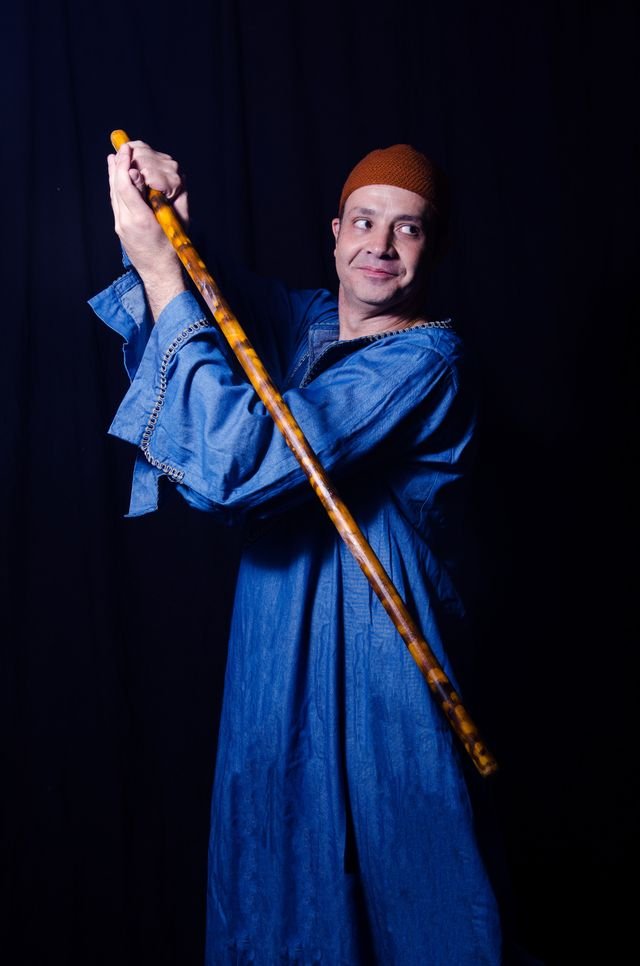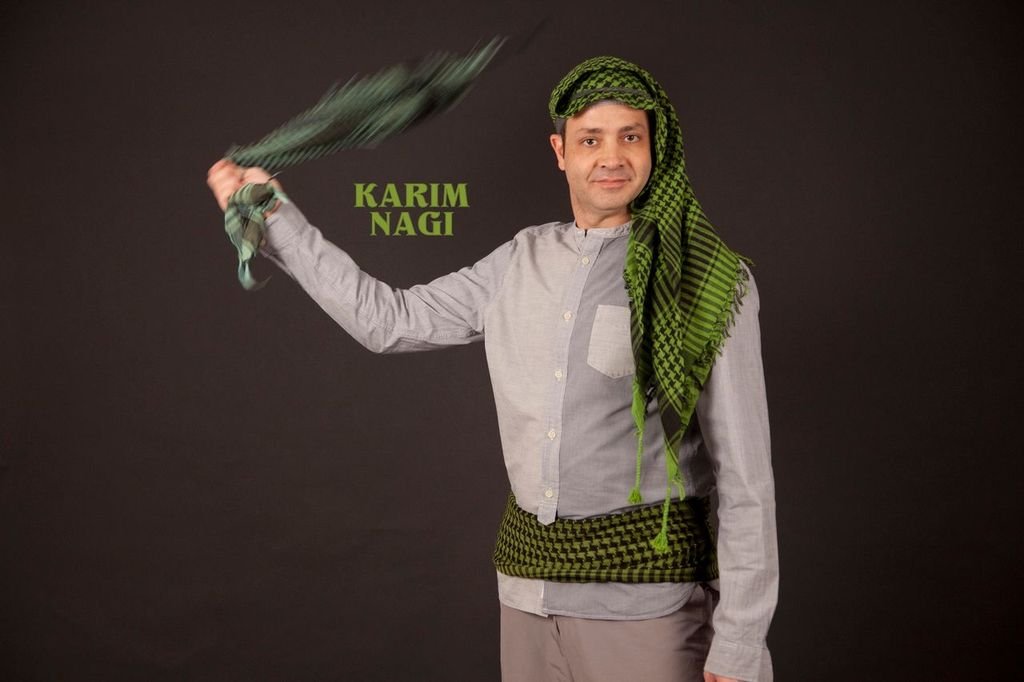Karim will be performing with his duo The Arab Blues for the Biamp Portland Jazz Festival on Feb. 21, 2025. GET TICKETS!
Karim Nagi in Portland, OR
We are excited to welcome Karim Nagi for two dance workshops while he is in Portland on February 22, 2025.
ABOUT:
Karim Nagi is a native Egyptian immigrant to the USA, and a true crossover artist uniting the Arab tradition with the global contemporary world. He has released fourteen CDs, ranging from traditional Arab music to fusion and electronica. He has authored instructional videos for Arab percussive instruments and Arab dance styles. As a dance and drum teacher, Nagi has taught in dozens of festivals in the United States, Asia, Europe and Cairo, as well as most major Arab Culture festivals in the USA. He is also a public speaker with a TEDx talk.
He taught at the New England Conservatory of Music for 5 years, and has lectured and presented at Harvard, MIT, Yale, Bowdoin, Princeton, Stanford, Berea, William & Mary, Georgetown, Virginia Tech, University of Chicago, University of Georgia, plus several Community Colleges. He has lectured internationally on Arts & Diversity at Kaoshiung (Taiwan) University, Beijing University, and University San Francisco de Quito Ecuador. Additionally, Karim Nagi's Arabiqa program has conducted over 500 school assemblies across America, exposing young audiences to Arab traditional arts.
His project Detour Guide incorporates English language storytelling with Arab music & rhythm, along with graphic & video art, to describe the experience of Arabs life & culture. Over the past 4 years Nagi has been the beneficiary of two Doris Duke Grant for the Islamic Arts through the Virginia Tech "Salaam" project and Young Audiences of New Jersey United We Create. He has also just been re-elected for a second term to the board of directors for Chamber Music America. In September he gave a TEDx Talk "The Tambourine, My Partner is Diplomacy & Disruption" which can be seen on the official TED website.
His most recent project involved the recording of his original compositions, using traditional instruments and top ensemble musicians. After decades of absorbing and enacting historic & heritage music, Nagi endeavors to participate in the continuum of his tradition wit new compositions. Two recordings feature his original works created within traditional forms. 2022's Huzam focussed on Arab art-music and classical forms, while 2023's Karama featured regional folklore and folk dance styles from around the Arab world.
Feb. 22, 2025
10:00 - 11:30 am
Studio Datura: 115 NE Russel St., Portland, OR
Dancing with sticks and canes is a quintessential expression in Egyptian village dance. The southern half of Egypt, know as Upper Egypt due to its higher altitude, is called "al-Sa'id" in Arabic (pronounced iSa-yeed)". The Saidi people are famous for this semi-acrobatic stick dance called "Tahteeb" for men and "Raqs Assaya" for women. It is essentially a form of martial art where the manipulation of the stick and the demeanor of movement replicated village life or battle scene. Grace is more valued than aggression. This dance is done solo or in groups where the sticks are operated in unified motion, and men and/or women play together.Karim teaches with the strait cane (any dowel between 3' and 4').
- Class 1 FOUNDATIONAL (90 min) The essentials dance steps, the body demeanor, and the main motions with the stick including spinning, twirling, rowing, flipping and striking.
Feb. 22, 2025
12:00 - 1:30 pm
Studio Datura: 116 NE Russel St., Portland, OR
Literally meaning "Stomp" in Arabic, Dabke (also spelled Dabka, Dubki, Dabkeh, plural Dabkaat) is a group dance found in the Eastern Arab countries. Performed mostly as a unisex line dance, Dabke is avidly done at the weddings and parties of Lebanese, Syrian, Jordanian and Palestinian communities. A version can also be found in Iraq, known as Chobie. The movements include rhythmic stomping, kicking, sidewards walking, hoping and jumping. In social settings the dancers hold hands and form long moving lines or wide rotating circles. There are also many stage performances and musical theater shows that feature Dabke dances. You may also find Dabke used as a form of non-violent social protest during war and conflicts. But it is primarily a proud and energetic group line dance enjoyed by all ages and both genders.
- Class 1 FOUNDATIONAL (90 minutes) Community style social dance.



